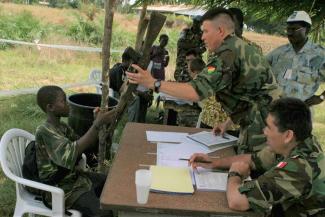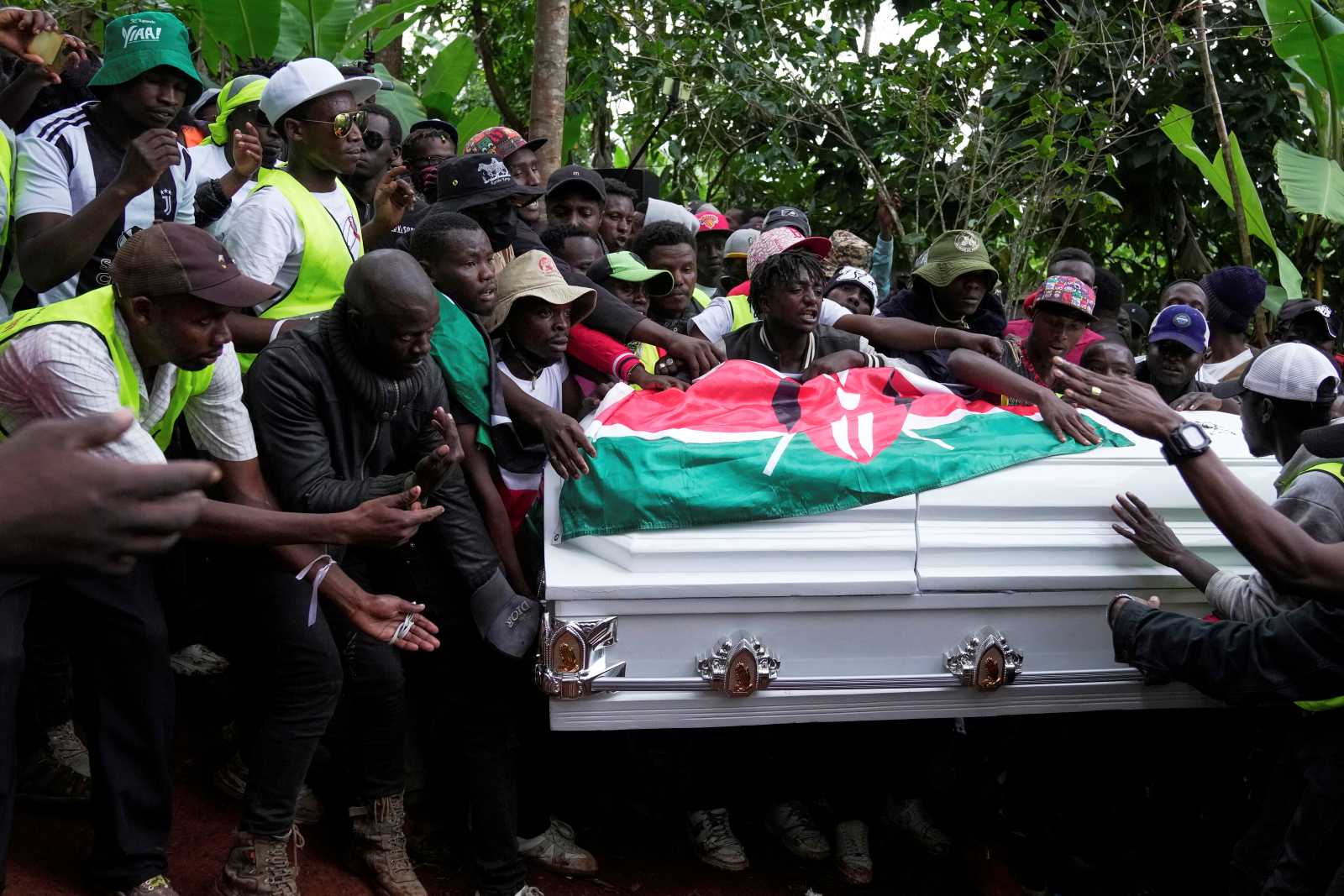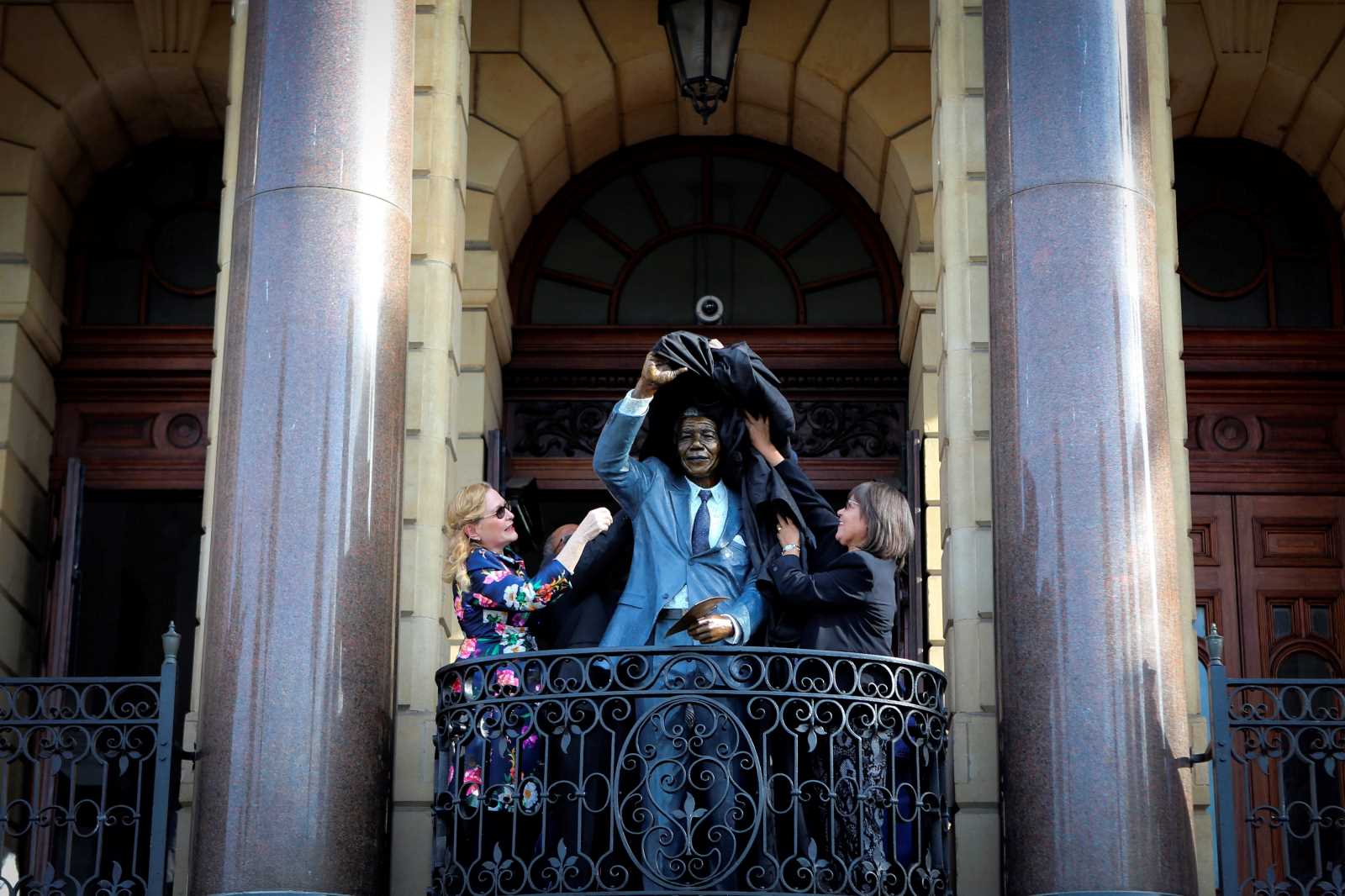Liberia
Well-meant is not necessarily well done

Many of Liberia’s problems today have deep historical roots. The country was founded in the mid-19th century by former slaves from North America and the Caribbean. Known as Americo-Liberians, they settled mainly on the coast of their new homeland, ensuring they had exclusive access to the country’s natural resources. They modelled their world on the USA and behaved like a master race, suppressing the heterogeneous indigenous communities of the country’s interior. As long-serving UN official Doris Kleffner explains in a recent book, they showed no interest in indigenous culture or language. Instead, they exploited the local peoples in ways that were “just as bad, if not worse, than what they had experienced themselves” on the other side of the Atlantic Ocean.
The desperately poor native population grew increasingly resentful of the Americo-Liberians. In 1979, a price hike for rice triggered violent protests and power struggles. This crisis escalated into a full-blown civil war that went on for 14 years. It was fuelled by ethnic divisions and attempts to secure political power in order to control natural resources.
A quarter of a million Liberians lost their lives, a million were displaced. All sides used child soldiers; barely imaginable atrocities were committed. In 2003, a peace agreement was finally reached with the help of the UN. Nonetheless, the war and its consequences were dreadful. Kleffner points to an economy in ruins, a rapidly growing population and unemployment soaring at an estimated 85 %.
Lack of cultural awareness
Many projects that were supposed to help rebuild the country have failed, the author argues. She was involved for several years in the UN peacekeeping mission in Liberia – amongst other things supporting former combatants’ reintegration into society.
Kleffner accuses the international community of not just a lack of cultural awareness but sheer neocolonialism in its attempts to impose western standards. In her eyes, political, economic and social systems were introduced without regard for local traditions. Such approaches, she claims, are doomed to fail.
One of many examples the author cites is an income-generating project in which the farmers were given a large number of chickens. Within a day, the villagers had killed all of the birds. They believed the people of a nearby village had turned into chickens to spy on them. Programmes need to take account of such traditional superstition.
Patronage and distribution
Widespread corruption and nepotism similarly obstruct reconstruction according to Kleffner. Even during the peace talks, parties haggled to secure as many lucrative positions as possible for relatives and friends. Kleffner points out that patronage networks have deep roots in Liberian society. Success and prosperity do not depend on individual achievement, but on status and social networks. People thus have few incentives to develop skills or get a formal education.
The patronage system made it easy for the warlords to recruit unemployed young men. Sometimes simply offering a hot meal was enough. However, the task of demobilising ex-combatants is all the more difficult. Training programmes and projects aimed at creating sustainable alternative sources of income often fail.
Kleffner claims that misdirected international aid exacerbated the problems. Here are three examples:
- In addition to formal schooling or vocational training, ex-combatants were given a one-off payment of $ 300 plus an additional monthly $ 30 during training. The money attracted them to participate, but warlords took the weapons from their fighters and handed them to relatives and friends. Many people thus ended up in the demobilisation programme – including frail old women – who had nothing to do with the warring parties. Moreover, the steady monthly income meant there was no incentive to complete a training programme.
- In another case, families stopped growing their own food because aid organisations distributed food to schoolchildren. It was enough for entire families to live on.
- Some employers, including the American tyre manufacturer Firestone, gave plantation workers sacks of imported white rice as part of their payment. The local brown “country rice” was then considered inferior and was hardly grown any more.
Kleffner writes that many Liberians are used to living hand to mouth and do not think long-term. Accordingly, aid programmes are misused for personal profit. They only run as long as external support is provided. In the author’s eyes, Liberia’s government is interested in growth but not national development. It attracts foreign investors who plunder the country’s natural resources. Liberian elites benefit, but masses of people do not.
Taking Liberia as an example, the former UN official points out the problems of international aid and calls for radical reform. Since the 1960s, she calculates that $ 600 billion in aid has flowed to sub-Saharan Africa. In her eyes, it has made practically no difference to people’s standard of living, so she wants western policymakers to reconsider their relationship with governments in developing countries. Kleffner concludes that the millions paid to corrupt elites have strengthened dysfunctional state systems, hindered development and has thus become the primary cause of migration.
Book
Kleffner, D., 2020: Liberia – Paradies auf Abwegen. Kritische Einblicke in die internationale Entwicklungspolitik („Liberia – Paradise on the wrong trail. Critical insights into international development policy“, in German only). Frankfurt, Brandes & Apsel.
Dagmar Wolf is the editorial assistant at D+C/E+Z.
euz.editor@dandc.eu













